Iran Expels More Dissident University Professors
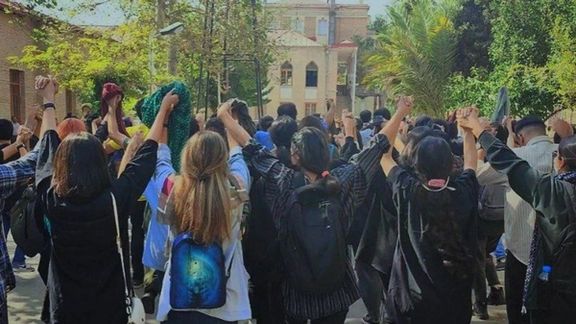
Iranian media report that nine professors of Tehran Azad University have been forced into early retirement because of expressing critical views against the Islamic Republic.

Iranian media report that nine professors of Tehran Azad University have been forced into early retirement because of expressing critical views against the Islamic Republic.
Moderate news website Rouydad 24 has quoted Susan Safaverdi, one of the professors as saying that they were expelled because they were not “revolutionary”.
She further noted that she and the eight others, who are expelled on the pretext of reaching the retirement age, have been repeatedly accused of being “anti-establishment”.
Safaverdi also pointed out that the head of the faculty has repeatedly emphasized only those who support the country’s 83-year-ol ruler Ali Khamenei, should teach at the faculty.
Safaverdi is the wife of Mohammad Ali Ramin, deputy minister of culture and a presidential advisor in Mahmoud Ahmadinejad's cabinet.
In addition to the forced retirement of these nine professors, the Islamic Republic is trying to put more pressure on other university professors who support anti-regime protests.
In Khorasan Razavi province in the northeast, Mahshid Gohari, professor of literature at Ferdowsi University of Mashhad, announced on her Instagram page that after seven years of teaching, the university has expelled her.
Javad Atefeh, a playwright, director and theater instructor, announced on his Instagram page, "For reasons that I am sure you know", he was not offered to teach in universities for the next semester.
Court cases have also been filed against many university professors and they have been arrested or summoned.
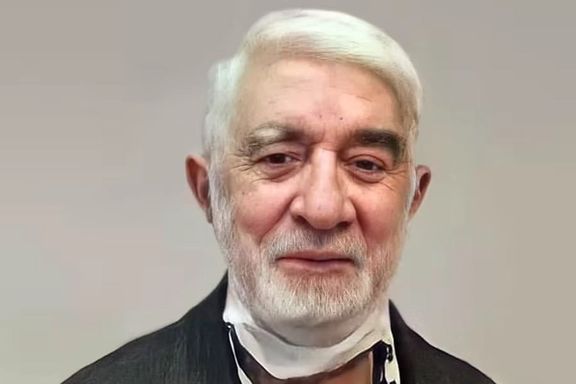
A prominent opposition figure says Iran needs a “fundamental change” based on “Woman, Life, Freedom” and constitutional change, in a statement released on Saturday.
Mir-Hossein Mousavi, who was a presidential candidate in 2009 and has been under house arrest since 2011, referring to government violence against protesters, said that such events have “demonstrated major truths for the nation.” The rulers of the Islamic Republic are not willing “to take the smallest step to meet the demands of the people.”
But what was noteworthy in Mousavi’s message, dubbed “To save Iran,” is his conclusion that the people have given up hope for reforms.
The leader of the Green Movement, born from large popular protests in 2009, is known as a staunch reformist, or someone who believes the Islamic Republic can be reformed to become a more democratic and tolerant polity.
But Mousavi’s statement seems to reject reform as a viable alternative, urging fundamental change, a new constitution and a constitutional assembly.
Although he does not openly call for regime change, but his demands, if implemented could lead to a new and democratic political system.
Mousavi in his statement has implicitly repeated what exiled Prince Reza Pahlavi has been saying for years, and other opposition activists have echoed in the past five months – transition from the Islamic Republic.
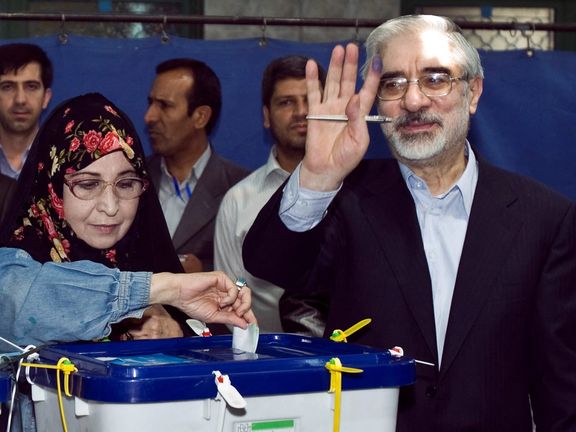
“Iran and the Iranians need a fundamental change, that takes its main features from the pure movement of ‘Woman, Life, Freedom.’ Mousavi said. These three words are “the seeds of a bright future, free of oppression, poverty, humiliation and discrimination.”
This represents an important turning point when an opposition figure from inside Iran demands a new constitution, implicitly rejecting the current leadership altogether.
However, Mousavi carries a heavy political baggage that has dented his popularity. When protests began in 2009 against the highly suspicious victory of Mahmoud Ahmadinejad in presidential elections that year, millions of Iranians poured into streets. They saw Mousavi who was the opposing candidate, as their leader, but he refrained from criticizing Supreme Leader Ali Khamenei who was ultimately responsible for engineering the vote count and the subsequent suppression of protesters. Mousavi came across as someone who did not want to challenge the Islamic Republic.
He also served as prime minister in the 1980s, when the government killed thousands of people in prisons. His critics say that Mousavi has not apologized or explained why he remained silent at the time.
Nevertheless, Mousavi puts forth three demands in his statement. First, a free and untainted referendum about the necessity to change or write a new constitution. Second, in case of a positive vote by the people, to form a constitutional assembly composed of the “real representatives of the nation” through a free and fair election. Third, a second referendum to approve the draft constitution to establish a regime based on rule of law, in conformity with human rights and the will of the people.
Mousavi acknowledged that his three demands require further clarifications, as for example who would implement the changes needed, but he appealed to sense of unity and cooperation “to save Iran”.
Iranians have been hotly debating the need to form an opposition council to manage the protest movement and plan for transition to a new form of government. So far, there are no signs that prominent activists abroad are about to untie and establish a framework of coordination. Inside the country no such move is possible because of repression, but many people seem willing to support a council formed abroad.
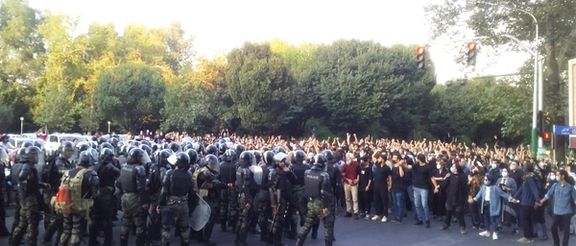
An opinion survey involving 158,000 people in Iran showed that more than 80 percent of respondents reject the Islamic Republic and prefer a democratic government.
The Netherlands-based Gamaan institute conducted the survey from December 21-31, which also included a sample of 42,000 respondents in the diaspora, revealed very similar attitudes between those in the country and abroad.
“In response to the question “Islamic Republic: Yes or No?” 81% of respondents inside the country responded “No” to the Islamic Republic, 15% responded “Yes,” and 4% were not sure. Of the Iranian respondents abroad, 99% responded “No,” opting against the Islamic Republic,” GAMAAN reported.
In a follow-up question for those who answered “No”, the survey asked about their preferred democratic and secular alternative political system. Of those, 28% inside Iran and 32% outside Iran would prefer a presidential republic, 12% inside Iran and 29% outside Iran would prefer a parliamentary republic, and 22% inside Iran and 25% outside Iran would prefer a constitutional monarchy.
In a press release shared with Iran International, GAMAAN explained that "This survey was conducted online using a specialized and secure platform." Given the inaccessible nature of the country, Gamaan used a special online tool to reach respondents in Iran through diverse channels, to eliminate chance of selective targeting and include as much of a representative sample as possible.
But GAMAAN does explain that it “uses digital tools and different methods to extract the (real) opinions of Iranians about (sensitive) social and political topics. The rationale for GAMAAN’s innovative approach is the fact that conventional survey methods cannot yield valid results in the existing Iranian context.” It also ran reliability comparisons with available data and other surveys.
Regarding the antigovernment protests since mid-September, 80% of those inside the country support the movement; 67% believe the protests will succeed, while 14% think they will not succeed. Around 15% of the population inside the country oppose the protests. Respondents outside the country overwhelmingly support the protests; of these, 90% think they will succeed, and only 9% think they will not succeed.
Responses to multiple questions confirm a general view shared by many observers that the clerical regime in Iran enjoys a 10-15 percent support in the country.
While 60 percent of respondents inside Iran describe themselves as proponents of regime change as a pre-condition for any meaningful change, only 6 percent support gradual reforms and 11 percent support the principles of the Islamic Republic.
Another result that confirms reporting by Iran International and others was the lack of support for Iran’s football (soccer) team in the 2022 World Cup. About half of the respondents in Iran and abroad “state that they feel happy that the soccer team of the Islamic Republic of Iran lost against the United States’ team. In contrast, 23% of those in the country and 8% of those outside report having felt sad about the game’s outcome.”
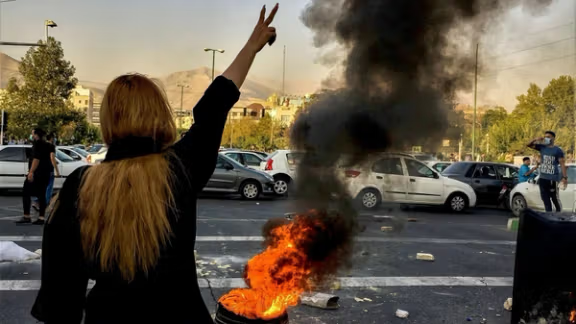
The survey revealed that 85 percent of respondents in Iran who support the protests agree with the formation of a so-called solidarity council, or opposition council comprising prominent activists of various political orientation to assume the leading role in the campaign against the Islamic Republic. Nearly 60 percent expect the council to form a transition council and a provisional government. Respondents name around 20 prominent figures in Iran and abroad as candidates for this council.
Prince Reza Pahlavi, Ali Daei, Ali Karimi, Hamed Esmaeilion, Hossein Ronaghi, Nazanin Boniadi, Fatemeh Sepehri, Masih Alinejad, Nasrin Sotoudeh, Toomaj Salehi, Narges Mohammadi, Molavi Abdolhamid, Golshifteh Farahani are the top candidates picked by respondents.
Remarkably, 73 percent inside the country believe that Western countries should defend the protestors’ rights by seriously pressuring Tehran. Of the Iranian respondents outside the country, 96% support this view. In contrast, around 19% of respondents inside the country think that Western powers should not intervene, as the protests are an internal matter.
Also, “a majority of 70% agree with Western governments proscribing the Islamic Revolutionary Guard Corps (IRGC) as a terrorist organization, expelling the ambassadors of the Islamic Republic, allowing international foreign intervention to protect protestors, sanctioning officials who played a role in suppressing the protests, and seizing Iran’s property and assets to cut the government’s access to them,” Gamaan says.
Note: In the original version of this article, a mistaken statement was published saying that the methodology of the survey was not fully clear. After further investigation paragraph 5 was amended.

Prominent Iranian film director Jafar Panahi was released on bail on Friday after he started a hunger strike to demand to be freed pending a retrial.
The Directors Guild of Iran announced his release on Friday a day after he had embarked on the hunger strike, adding that his sentence has been declared void by the country’s Supreme Court.
“I firmly declare that in protest against the illegal and inhumane behavior of the judicial and security apparatus and their hostage-taking, I have started a hunger strike since the morning of February 1… I will refuse to eat and drink any food and take medicine until the time of my release,” read a statement he sent to his wife.
The director was imprisoned in early July after going to Evin prison to enquire about the whereabouts of other renowned filmmakers Mohammad Rasoulof and Mostafa Al-Ahmad following their arrest a few days earlier.
Later, it was announced the authorities had decided to reactivate a six-year sentence originally meted out to Panahi in 2010 alongside a 20-year filmmaking and travel ban.
The charges were connected to his attendance at the funeral of a student who was shot dead in 2009 during the Green Movement protests and his later attempt to shoot a feature about the uprising.
In October, Iran’s Supreme Court announced that Panahi’s sentence had passed the country’s ten-year statute of limitations. Accordingly, this should have granted Panahi immediate release, but he is still behind bars.
Panahi has won several international awards, including the 2015 Berlin Film Festival's Golden Bear for his film "Taxi".
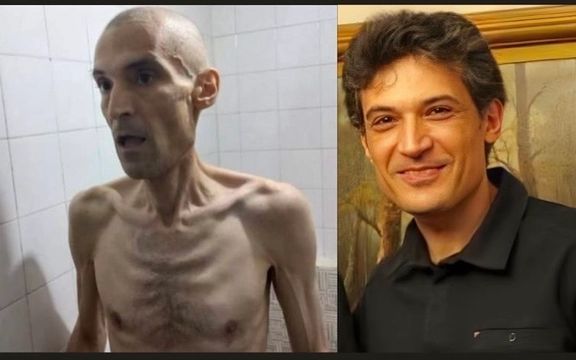
Social media has exploded with concerns about long-time Iranian political prisoner and physician Farhad Meysami, emaciated over long and repeated hunger strikes.
Many Iranian dissident figures and foreign officials have expressed outrage and concern over his deteriorating health condition. A photo of Meysami along with a letter from Rajaei-Shahr prison in Karaj were published on social media Thursday, showing him in a horrible state after losing weight.
According to his lawyer, the 53-year-old prisoner of conscience, who has been in jail since 2018 for supporting women activists protesting against the mandatory Islamic dress code – or hijab -- began his hunger strike on October 7 to protest recent government killings of demonstrators.
"My client Farhad Meysami’s life is in danger,” tweeted lawyer Mohammad Moghimi. "He went on hunger strike to protest the recent government killings in the streets," he said, adding that Meysami had lost 52 kg (115 lb). Images of Meysami show him curled up on what looks like a hospital bed, and another standing, his ribs protruding.
In reaction to the photos, Washington's special envoy for Iran Robert Malley tweeted, "Shocking images of Dr. Farhad Meysami, a brave advocate for women's rights who has been on hunger strike in prison.” "Iran's regime has unjustly denied him and thousands of other political prisoners their rights and their freedom. Now it unjustly threatens his life."
German politician Hannah Neumann, who is serving as a Member of the European Parliament, said, “We have to throw a lifeline to people such as Farhad Meysami, not to the IRGC terrorists or the current regime,” referring to the European Union’s decision not to greenlight a recent resolution by the parliament that has called for the designation of the Revolutionary Guard as a terror outfit.
Canada-based activist Hamed Esmaeilion who has so far organized several rounds of worldwide protest rallies against the Islamic Republic, said that Meysami and many others do not belong in prison. He added that the regime is responsible for his life.
Esmaeilion’s wife and daughter were killed in 2020 when Iran’s Revolutionary Guard fired two missiles at a Ukrainian jetliner taking off from Tehran and all 176 people onboard died in the crash.
Women’s rights activists Masih Alinejad highlighted, “To those who think Iran’s uprising is over and Iranians have given up, behold the enormous courage of political prisoner Farhad Meysami. He’s been on a four-month hunger strike against the execution of political prisoners and forced hejab (hijab). Iranians knows that history is one our side.”
Sportsman-cum-civil rights activist Ali Karimi said, "Maysami 's photos are shocking. Images similar to the Nazis' Auschwitz crimes. This is the death camp of the Islamic Republic. Mullah’s regime is a shame for humanity."
Exiled prince Reza Pahlavi also reacted to the photos, saying “The emaciated body of Farhad Meysami is another symbol of the boundless cruelty of the Islamic regime.
He should stay alive and enjoy a free Iran in the future with his skin and flesh; an Iran where no one is imprisoned or forced to go on a hunger strike because of their beliefs and opinions, Pahlavi wrote in a tweet. “I believe that these days, which are more bitter than poison will pass,” he added, alluding to Meysami’s letter.
In his letter from prison, Maysami announced that he plans to make the water he drinks bitter for the next 10 days as a symbolic move against "these times that are more bitter than poison" that the Iranian government has created for "everyone in all aspects".
The political activist also wrote that “I will still insist on my three demands of stopping the execution of protesters, releasing six political-civil prisoners, and stopping forced-hijab harassment.” "I will continue my impossible mission in the hope that it may become possible later on with a collective effort,” he wrote. The title of the political activist's letter is "For the days of suffering and suffering and suffering".
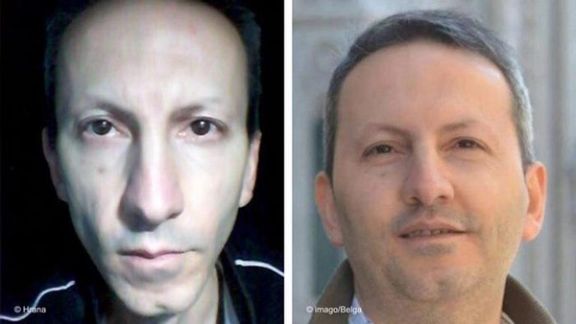
Meysami also went on a hunger strike in May in protest to the possible execution of Ahmadreza Jalali (Djalali), a Swedish-Iranian dual national scientist taken hostage since 2016 who was under the threat of execution last year.
Iran has been rocked by nationwide unrest following the death of Iranian Kurdish woman Mahsa Amini on September 16 in hijab police custody, posing one of the strongest challenges to the Islamic Republic since the 1979 revolution. Women have played a prominent role in the uprising, many of them waving or burning their headscarves. Rights groups say more than 500 protesters have been killed and nearly 20,000 arrested. At least four people have been hanged, according to the Iranian judiciary.
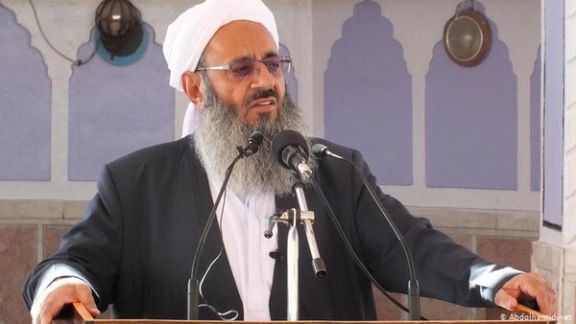
Outspoken Sunni religious leader Mowlavi Abdolhamid says the Iranian government’s mistreatment of political prisoners and forced confessions are un-Islamic.
During his Friday prayer sermon, the country’s most influential Sunni cleric criticized the “violent treatment” of prisoners by the regime, emphasizing that prisoners should be respected and beating them, insulting them, or putting pressure on them is 'haram,' an Arabic term meaning 'forbidden' in Islamic law or sharia.
"Forced confessions are a violation of the prisoner's right," he said, adding that prisoners should not feel that their interrogators are trying to "attack" them or should not feel that they are stuck in the hands of their "enemies."
Abdolhamid also said officials of the country should be selected from among secular people too, noting that not all Iranian people are "religious", and some do not accept religion. “Don't blame me for this view. Some may not accept religion, but the right policy is that if they have merit and conscience, they should be employed," he added.
He also denounced executions of prisoners in the country, including the hangings over drug-related crimes, saying, "I believe that these executions are not beneficial for the society because drugs are still available as ordinary people do not smuggle them into the country.”
Amid nationwide protests in December, the Islamic Republic hanged four young men arrested during the unrest on spurious charges.
A top advisor to Abdolhamid was arrested earlier in the week, leading to more tensions in Zahedan, capital of Iran's southeastern Sistan-Baluchestan.